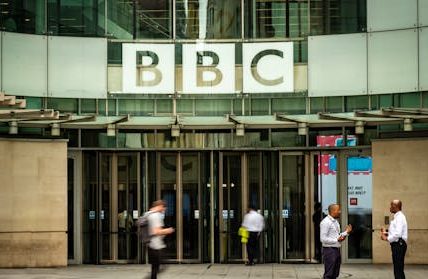Why modern masculinity is a climate issue
What does masculinity have to do with the climate? A surprising amount.
For example, significant figures in the manosphere combine misogyny with anti-environmentalism. Think Andrew Tate boasting of his fleet of cars and his private jet. And because care is central to climate action, it may be seen as “women’s work”.
I recently spoke at a panel event in Newcastle, organised by The Conversation and youth charity Cumberland Lodge, on youth, masculinity and the political divide. The sheer breadth of the discussion – between academics and teenage members of NE Youth on the panel and members of the audience – show how messages and beliefs about gender roles and masculinity are embedded in so many aspects of society and our lives.
My research explores what academics call ecological masculinities. This recognises that there are gender and class expectations of who takes the lead in climate action, like the ones I mentioned.
When young, working-class men – many of whom have never been invited into environmentalism before – get involved with climate action, this is more than helping the environment. It’s reshaping perceptions of who gets to play a caring role, including environmental care.
As part of my research, I’m working on the National Lottery Climate Action Fund project Birds, Bees, Bikes and Trees. This is a partnership between Gateshead’s Baltic Centre for Contemporary Art and North East Young Dads and Lads, a regional charity working with young fathers and their families. Through the project, young men get involved in planting trees, making pollinator habitats, and learning skills in bicycle maintenance.
In listening to the young men at the project launch of Birds, Bees, Bikes and Trees I learned that they live their lives locally. They do not go on holidays abroad. They visit local shops and the vast majority do not own a car – they walk, cycle or take public transport.
But they are not commended for their green citizenship. Instead, they are often marked by poverty and deprivation. This view, which sees them as lacking, consigns their demographic to marginalisation. They are seen as without education and without opportunity. It also helps explain why private car ownership is seen as aspirational.
Many areas of north-east England can be considered “left behind places”. At the panel event, attendees talked eloquently about how in their communities, stories of their hometown’s past industrial successes have become their inherited legacies. The decline of traditional industries, often associated with traditional ideas of masculinities, has created generational gaps, a vacuum in identity and purpose.
Opening up environmental care to young men brings opportunities. I am one of a team of beekeepers who tend to two beehives on the south facing roof of the Baltic.
These hives are managed by the North East Young Dads and Lads. Due to conditions at this site – looking after bees at 42 metres in the air – the young men are offered extra training that provides them with industrial skills, in this case industry standard health and safety certification for harness and lanyard working. This adds value to the their ecological efforts.
Young men involved in the project have become employed as beekeepers and cycling coordinators, as well as trained in bike maintenance, forest school leadership and outdoor first aid.
Birds Bees Bikes & Trees: Source to Sea.
In the North East, though, environmental work has suffered a setback. Durham County Council – now run by Reform UK – has announced they’re removing the words equality and climate change from department names and have rescinded their climate emergency declaration.
This reflects the views of many Reform voters, who – according to YouGov polling – don’t see the environment as a key issue affecting the country.
But the net zero economy in the UK is already four times the size of the manufacturing sector. Challenging the narrative on masculinity – its relationship to caring, and to traditional forms of work – is beneficial for young men. One dad, now employed on the project as a community beekeeper and cycling coordinator, said:
Being more in touch with nature, not only the bees but the flowers and trees they forage on, has been an amazing experience … I see myself as a human worker bee in partnership with these fantastic little creatures, helping them produce a surplus of honey.
Planting trees, restoring bikes, inspecting bee hives and looking after green spaces isn’t just environmental work. It’s emotional work. It’s care work. And changing the narrative on who gets to do it is vitally important.
Get your news from actual experts, straight to your inbox. Sign up to our daily newsletter to receive all The Conversation UK’s latest coverage of news and research, from politics and business to the arts and sciences.
Michael Joseph Richardson receives funding from National Lottery Community Fund.



